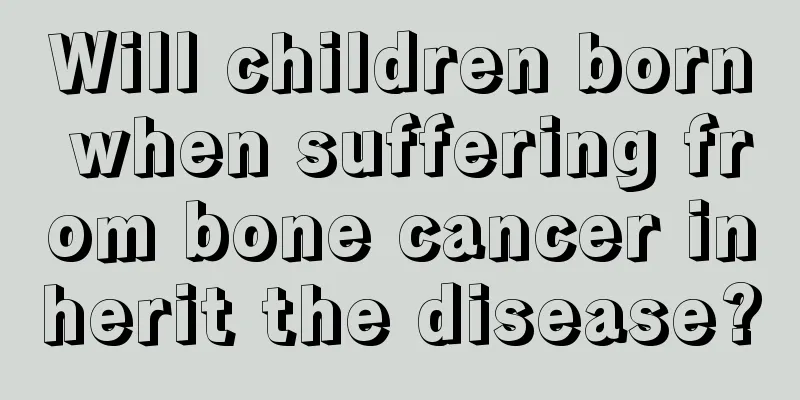Distribution of internal organs

|
The internal organs are distributed differently in the body and are all in normal positions, unless some organs are in the opposite position because they grow differently. In extremely rare cases, the patient's internal organs are mainly distributed in the abdominal cavity, as well as various digestive systems, respiratory systems, and blood circulation and excretion systems. These systems are also of great significance to the human body. Distribution map of human internal organs (understand the internal organs of the human body to protect your body) 1. The seven systems of human organs are: digestive system, respiratory system, circulatory system, excretory system, nervous system, motor system, and endocrine system. 2. Basic tissues of the human body: epithelial tissue, connective tissue, muscle tissue, and nervous tissue. 3. There are so many organs in the human body, let’s talk about the main internal organs. Heart - responsible for transporting blood to all parts of the body Lungs - in the lungs, CO2 in the blood is eliminated, oxygen is absorbed, and then given to the heart to circulate throughout the body Liver - processes some toxic substances absorbed by the body, such as alcohol. This is why people with poor liver function cannot drink too much alcohol. This is together with the gallbladder. In addition, the liver replenishes the blood when the human body is suffering from a small amount of ischemia. If there is a large amount of blood loss, the bone marrow will produce blood. The stomach and the intestines below are responsible for digestion and absorption. The kidneys are very interesting. They control a person's innate energy. Poor kidney function manifests as decreased sexual function. Kidneys belong to water, which controls fire. Fire represents the heart, so poor kidney function can directly affect the heart and spleen. Traditional Chinese medicine says that thinking too much can damage the spleen. When you miss someone too much, your mouth will be dry and have a bad smell when you wake up in the morning. This is because a bad spleen affects the stomach, which in turn affects the mouth. 4 The main immune organs of the human body: tonsils, thymus, spleen, lymph nodes, bone marrow, and lymphatic vessels. Traditional Chinese medicine divides the important internal organs of the human body into two categories: zang-fu and fu-viscera. The theory about zang-fu is called "zang-xiang" theory. Zang, the same as "zang", refers to the internal organs hidden inside; Xiang is a sign or image. This means that although the internal organs exist inside the body, their physiological and pathological changes will manifest themselves externally. Therefore, the Zang-Fu theory of traditional Chinese medicine is a theory that studies the activities of internal organs and their interrelationships by observing external signs of the human body. Zang and Fu are distinguished according to the different functions of internal organs. The internal organs, including the heart, liver, spleen, lungs and kidneys (the five internal organs), mainly refer to some organs with full internal tissues in the chest and abdominal cavity. Their common function is to store essence. Essence and Qi refer to the nutrients that are indispensable for nourishing the internal organs and maintaining life activities. The fu organs, including the gallbladder, stomach, large intestine, small intestine, bladder, and triple burner (six fu organs), mostly refer to some hollow organs in the chest and abdominal cavity. They have the functions of digesting food, absorbing nutrients, and excreting waste. In addition, there are "extraordinary organs", which refers to a type of organs outside the five internal organs and six bowels, whose physiological functions are different from those of ordinary organs, including the brain, marrow, bones, veins, and female uterus. It should be pointed out that the internal organs in traditional Chinese medicine, in addition to referring to the actual anatomical organs, are more importantly a summary of the physiological functions and pathological changes of the human body. Therefore, although the names of the internal organs are mostly the same as those in modern medicine, their concepts and functions are not completely consistent, so the two cannot be equated. According to traditional Chinese medicine, the human body is an extremely complex entity with the five internal organs as the core. It is based on the five internal organs, coordinated with the six bowels, with meridians as a network, connecting the body's tissues and organs, and forming five major systems. This is part of the systems theory of traditional Chinese medicine. The internal organs of the human body are not only structurally connected, but also closely connected and coordinated in function. The completion of a certain physiological activity often involves the participation of multiple organs, and one organ has multiple physiological functions. This interconnection between the internal organs is a manifestation of the integrity of the physiological activities of the human body's internal organs. Therefore, the internal organs may affect each other after they become diseased. At present, what we discuss most is the relationship between the internal organs and the relationship between the internal organs and the bowels. |
<<: How to diagnose myocardial infarction
>>: What are some tips for having blood drawn without pain?
Recommend
What to eat for urethritis? These foods are crucial
Urethritis is a very common urinary system diseas...
Tachycardia atrial fibrillation
The heart needs to rely on a certain beating freq...
Gallbladder cancer should be treated promptly
Gallbladder cancer is also a relatively serious c...
What foods are best for replenishing qi and blood?
Deficiency of Qi and blood can bring many adverse...
How to remove forehead acne
Acne, also known as pimples, is a common facial s...
Early symptoms of testicular cancer
The health of the testicles directly affects the ...
What should lung cancer patients pay attention to in their diet? Dietary conditioning methods for lung cancer
Lung cancer is a common disease. This disease is ...
Experts explain the specific diagnostic steps for colorectal cancer
In medicine, the diagnosis of colorectal cancer n...
Is plank support good for the cervical spine?
Nowadays, more and more people suffer from cervic...
Eating yellow rice frequently can cause liver cancer
In recent years, the incidence of liver cancer in...
Chemotherapy plus radiotherapy can treat small cell lung cancer
For patients with small cell lung cancer, knowing...
Will the transplant implant on the fourth day?
There are many things to pay attention to when do...
What to do if your nose is dry and itchy? Teach you some tips to relieve the pain
Many people will experience symptoms such as dry ...
The efficacy and function of green hair crystal
Green Rutilated Quartz is a natural crystal that ...
Is cellulose a polysaccharide?
Cellulose is a substance mainly found in plants. ...









